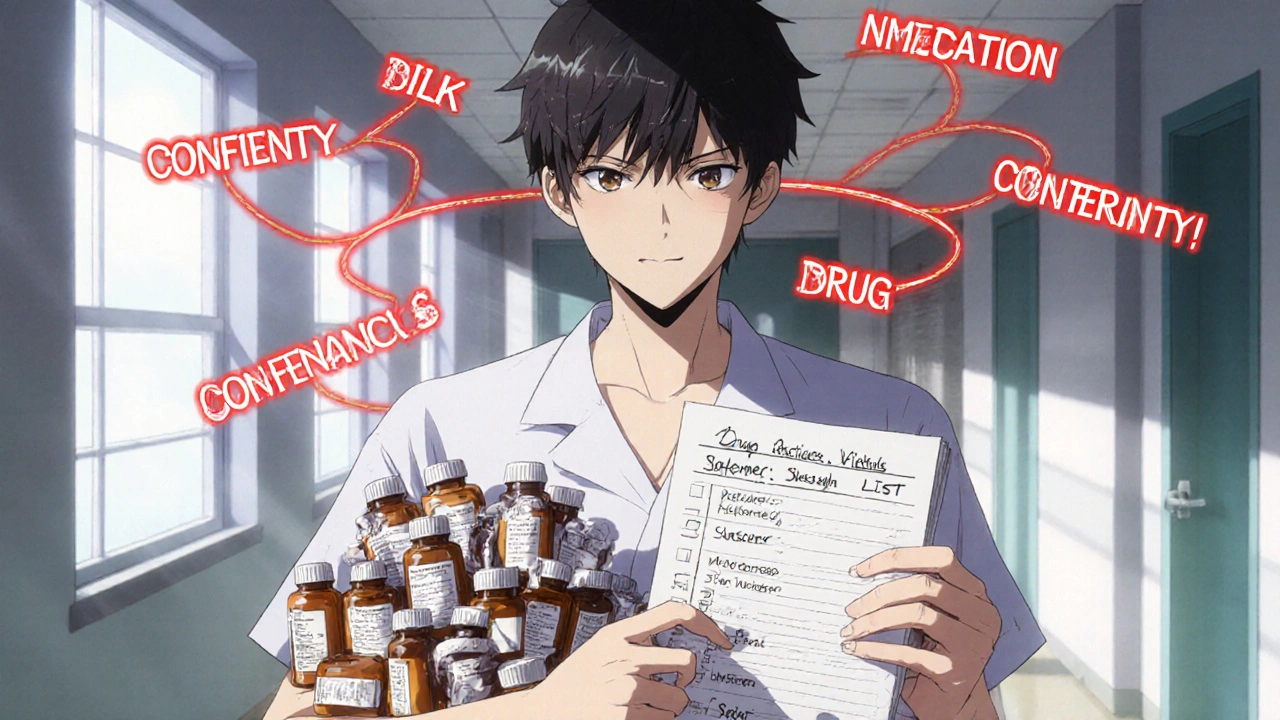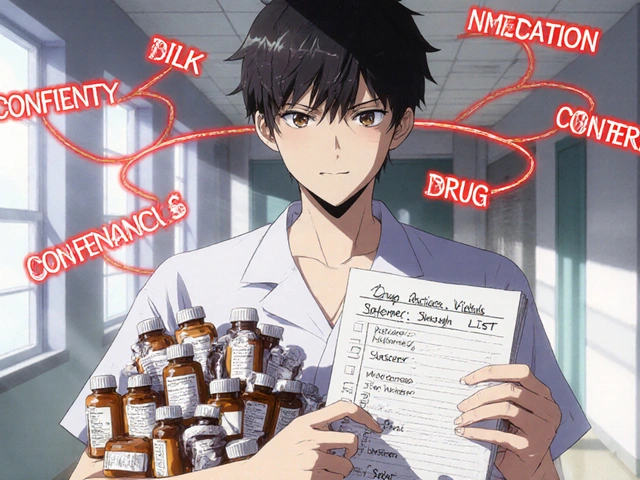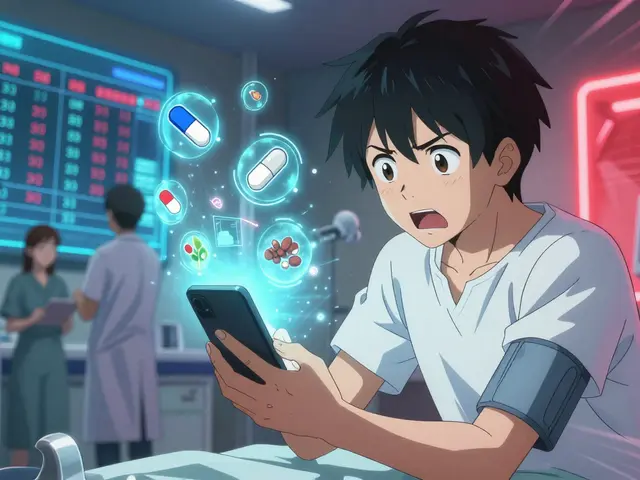Every year, nearly 1 in 5 patients are readmitted to the hospital within 30 days of discharge. And in more than half of those cases, the reason isn’t a new illness-it’s a mistake with their medications.
When you leave the hospital, your doctor gives you a new list of pills. But what if that list doesn’t match what you were taking at home? What if you were taken off a blood thinner in the hospital, and no one told your primary care doctor to put it back on? What if you never filled the new prescription because you didn’t understand the instructions? These aren’t rare mistakes. They happen in 30% to 70% of hospital discharges, according to the Agency for Healthcare Research and Quality. And they lead to falls, kidney damage, heart attacks, and trips back to the ER.
Coordinating your medication plan after discharge isn’t just a paperwork task. It’s a safety net. And it needs to be done right-by you, your doctor, your pharmacist, and sometimes even your family.
What Is Medication Reconciliation?
Medication reconciliation is the formal process of comparing your current home medications with the ones you were given at discharge. It’s not just about checking names and doses. It’s about asking: Did they stop something you needed? Did they add something that clashes with your other pills? Did you actually get the right prescription filled?
This isn’t optional. It’s a nationally recognized quality measure (NQF 0097) that Medicare and private insurers track. Hospitals and clinics are scored on how often they complete it within 30 days of discharge. If they don’t, they lose money. But more importantly, patients lose safety.
The goal is simple: make sure every pill you’re supposed to take-and every pill you’re not supposed to take-is clear, correct, and confirmed.
Why Medication Errors Happen After Discharge
Medication mistakes after hospital stays don’t happen because someone was careless. They happen because the system is broken.
During your hospital stay, your medications change. Maybe you stopped your blood pressure pill because your numbers dropped. Maybe you got a new antibiotic for an infection. Maybe you were taken off your diabetes medicine because you weren’t eating. When you leave, those changes get documented-but not always communicated.
Here’s what usually goes wrong:
- Your primary care doctor never sees the discharge summary.
- The pharmacy doesn’t know what was changed in the hospital.
- You forget to bring your home medication list to the hospital.
- A specialist prescribes something new but doesn’t tell your PCP.
- You don’t fill a new prescription because it’s too expensive or confusing.
One real example: A 72-year-old man was hospitalized for pneumonia. He was taken off his warfarin (a blood thinner) because he was at risk for bleeding. He got better and went home. No one told his cardiologist. Two weeks later, he had a stroke. His warfarin had never been restarted.
These aren’t hypotheticals. They’re common. And they’re preventable.
The Three Key People Who Must Be Involved
Coordinating your meds after discharge isn’t one person’s job. It’s a team effort.
1. You (The Patient)
You are the most important person in this process. No one else has your full medication history or knows what you actually take at home.
Before you leave the hospital:
- Bring a complete list of everything you take: prescription drugs, over-the-counter pills, vitamins, supplements, creams, eye drops, and herbal remedies.
- Bring the actual bottles-not just a list. Photos of labels work too.
- Ask: “What changed? Why? What should I stop? What should I start?”
- Get a written copy of your discharge meds in plain language.
After you get home:
- Compare your discharge list to your home list. Write down any differences.
- Call your pharmacy. Ask them to check if your new prescriptions were filled correctly.
- Set reminders for new pills. Use a pill organizer if needed.
2. Your Primary Care Doctor (PCP)
Your PCP should get your discharge summary within 24 to 48 hours. But often they don’t. That’s why you need to follow up.
Ask your hospital discharge team: “Will my PCP get my discharge summary? If not, how do I make sure they do?”
Within 7 to 14 days after discharge, schedule a follow-up visit-even if you feel fine. This is when medication reconciliation should happen. If your doctor says, “We’ll just update your records,” push back. Ask: “Did you compare my home meds to my discharge meds? Did you check for conflicts?”
According to the American Society of Health-System Pharmacists, if your PCP doesn’t document that they reviewed both lists, it doesn’t count.
3. Your Pharmacist
Pharmacists are the hidden heroes of medication safety. Studies show pharmacist-led reconciliation reduces medication errors by 32.7% and cuts readmissions by 28.3%.
Many hospitals now have pharmacists on discharge teams. If yours doesn’t, go to your pharmacy after discharge. Bring your discharge list and your home list. Ask them to:
- Compare the two lists side by side.
- Check for drug interactions.
- Confirm you got the right dose and form (e.g., tablet vs. liquid).
- Explain why each change was made.
Pharmacists can also help you get affordable meds. If a new prescription is too expensive, they can suggest alternatives or help you apply for patient assistance programs.
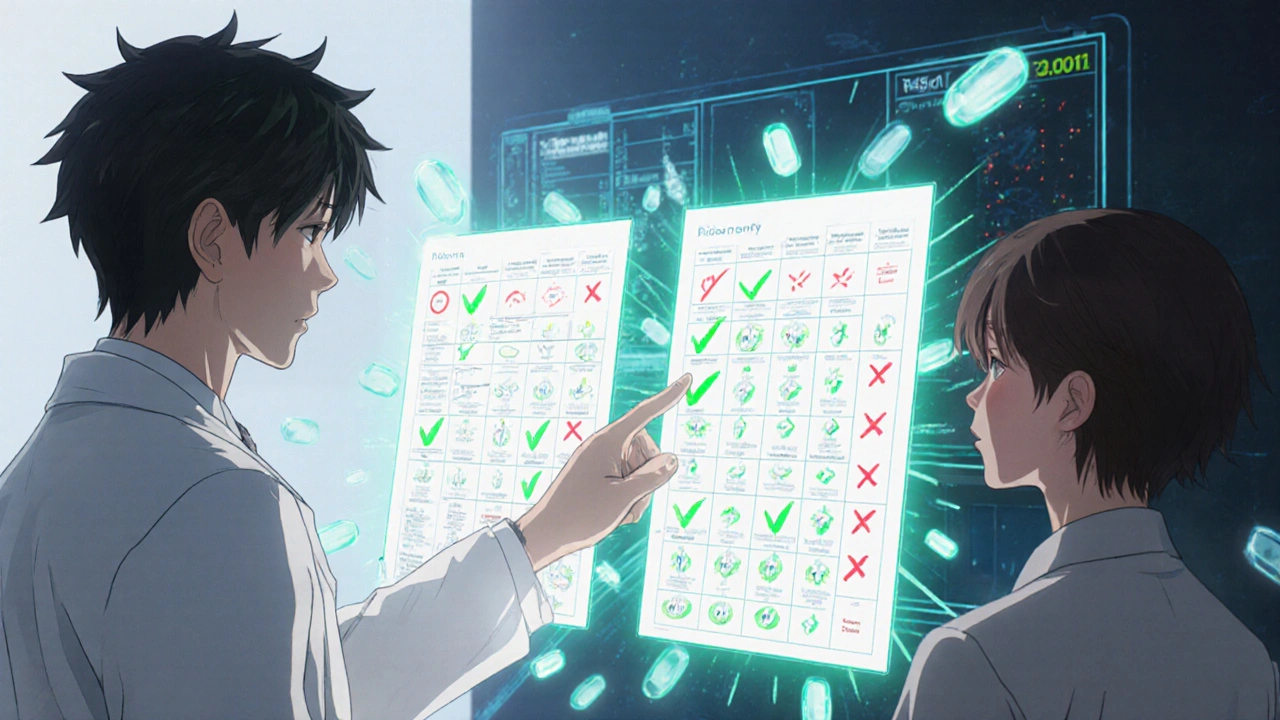
How to Do It Right: A Simple 5-Step Plan
You don’t need a degree in medicine to get this right. Just follow these steps.
- Get your discharge meds list in writing before you leave. Make sure it includes names, doses, frequencies, and reasons for each change.
- Compare it to your home list-right away. Use a notebook or your phone. Highlight differences.
- Call your pharmacy within 24 hours. Ask: “Did I get all my new prescriptions? Are they correct?”
- Schedule a follow-up with your PCP within two weeks. Bring both lists. Ask them to reconcile them in front of you.
- Check in with your pharmacist after your doctor visit. Ask: “Did we fix everything? Is there anything I should watch for?”
That’s it. Five steps. No apps needed. No fancy tech. Just clear communication.
What to Do If Your Doctor Doesn’t Reconcile Your Meds
Not all doctors do this well. Some are busy. Some don’t know the rules. Some assume someone else handled it.
If your PCP says, “We’ll update your chart,” but doesn’t show you the comparison:
- Say: “I’ve been told this is a safety step. Can you show me how you compared my home meds to my hospital meds?”
- Ask: “Will this be documented as medication reconciliation under NQF 0097?”
- If they can’t or won’t, ask for a referral to a pharmacist for medication therapy management (MTM). Many Medicare Advantage plans cover this for free.
- If you’re still not getting help, call your insurance company. Ask: “What’s my plan’s process for post-discharge medication reconciliation?”
Medication reconciliation is not a courtesy. It’s a standard of care. You have the right to it.
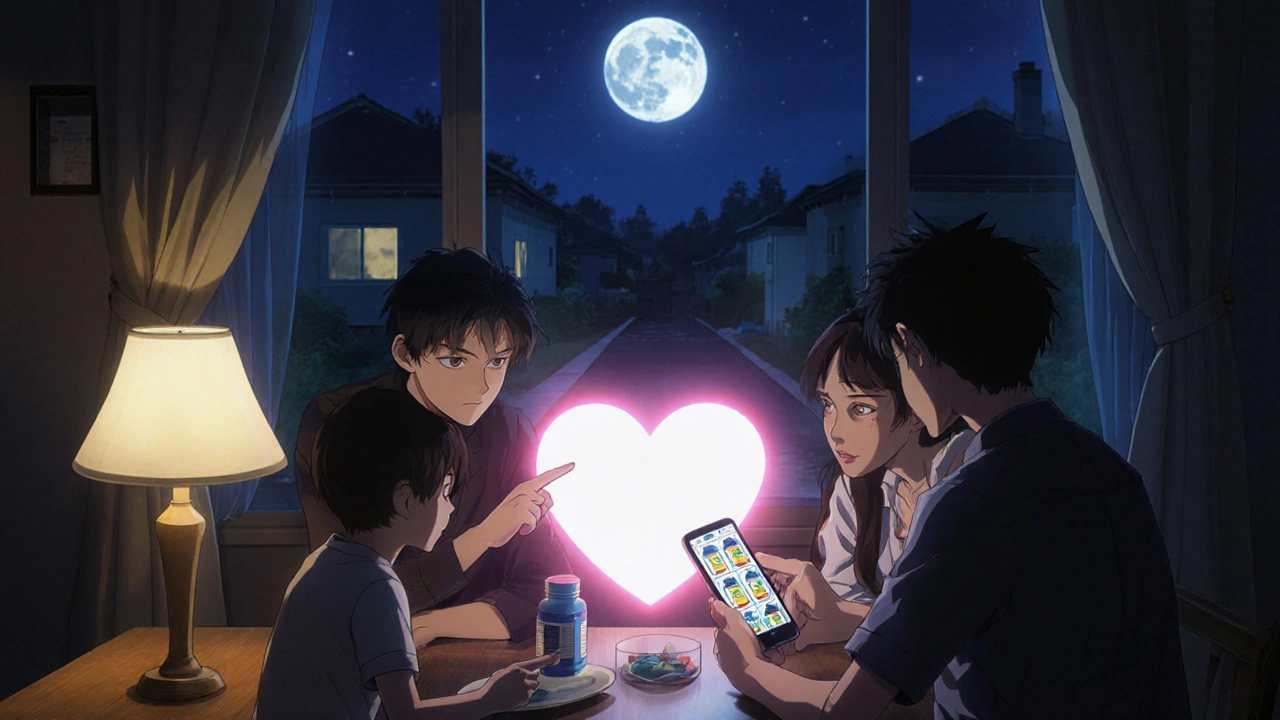
Technology Can Help-But It’s Not Enough
Hospitals use electronic health records (EHRs). Pharmacies use systems that track fills. Some apps let you log your meds.
But here’s the problem: none of these systems talk to each other well. A 2022 survey found 68% of hospitals have fragmented EHRs that don’t share discharge data with primary care clinics.
AI tools can flag potential errors, but they can’t ask you if you’ve been taking your pills. A phone call from a pharmacist can.
Technology is a tool-not a replacement-for human connection.
Best practice: Use your phone to take photos of your pill bottles. Keep them in a folder labeled “Current Meds.” Share that folder with your family and your pharmacist. That’s more reliable than any app.
What Happens If You Don’t Do This?
Medication errors after discharge cost the U.S. healthcare system $21.4 billion a year. But the real cost is measured in lives.
Patients who don’t have their meds reconciled are:
- 40% more likely to be readmitted within 30 days.
- 3 times more likely to visit the ER.
- At higher risk for kidney failure, internal bleeding, or heart problems.
And it’s not just older adults. Younger patients with chronic conditions-like diabetes, epilepsy, or mental health disorders-are just as vulnerable.
One woman, 48, was discharged after surgery. She was given a new painkiller. She didn’t realize it interacted with her antidepressant. Within a week, she had seizures. She ended up back in the hospital.
It didn’t have to happen.
Final Thoughts: Safety Starts With You
Hospital discharge is a fragile moment. You’re tired. You’re overwhelmed. You’re handed a stack of papers and told, “Call if you have questions.”
But you don’t have to wait for questions. You have to ask them first.
Medication reconciliation isn’t a box to check. It’s a conversation. And you’re the most important person in that conversation.
Take control. Bring your list. Ask for a comparison. Talk to your pharmacist. Follow up. Don’t assume someone else is handling it.
Your health isn’t a system. It’s your life. And no algorithm or electronic record can protect it better than you can.

